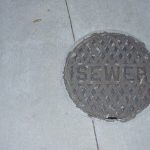Generally,
tankless water heaters should have professional maintenance at least once each year, but there are certain circumstances where your water heater may require additional attention. So, here we will explore tankless water heater maintenance, so you can have the details you need to keep your unit operating at optimum efficiency.
The Basics of Tankless Water Heaters
One of the most attractive features of a tankless water heater is that instead of a storage tank, water is heated directly. This means that every time you use your hot water faucet the tankless water heater is activated. This type of water heater uses heating elements or a heat exchanger fueled by electricity or gas to warm the water. Since there is no need to keep a tank full of water warm, tankless models offer superb efficiency.
The Importance of Maintenance
Tankless water heaters have a typical lifespan of 20 years plus, but this long lifespan can only be achieved with proper maintenance. While tankless units are often marketed as “low maintenance” this doesn’t mean that maintenance is not still important.
Tankless water heaters can be affected by hard water. The minerals in hard water can build up within the heat exchanger, restricting water flow and forcing the unit to work harder to heat the water.
Over time, you may notice your energy bills increasing as more energy is used to heat the water, but the mineral deposits can shorten the lifespan of the appliance as irreparable damage is caused to the heat exchanger.
During a professional maintenance visit, the technician will descale or delime your water heater. This will remove any buildup that may have accumulated around the heating elements. This will improve efficiency and reduce strain on the system, prolonging the lifespan of the appliance.
Is Once a Year Enough?
While in many cases, an annual maintenance visit will be sufficient, there are two instances where maintenance may be needed more frequently.
If you live in an area with really hard water, it may be necessary to schedule an appointment more frequently. The water entering your water heater will inevitably carry minerals into the appliance, but when your water is particularly hard, it may be a good idea to schedule an appointment twice a year. Fortunately, there are USGS resources available to determine if your region has exceptionally high concentrations of hard water.
Another scenario where you may require additional maintenance is if your water heater has been set to a high temperature. When the temperature of your tankless water heater is set too high, there is an increased risk of scale build up. The reason for this is that chemicals dissolve faster in warmer water. The hotter the water temperature, the faster limescale will accumulate around your heating elements.
In order to determine if your water heater is set to a high temperature, you’ll need to check the thermostat. If it is showing a temperature of 120ºf or greater, you’ll need to schedule more frequent maintenance to ensure that there is no mineral buildup on your heat exchanger.
By Giovanni Longo President Flood Brothers Plumbing
Giovanni Longo is a 3rd generation master plumber who has been practicing his craft and trade in the greater Los Angeles area for well over a decade and a half. A plumbing and hydraulics-engineering innovator, Giovanni’s particular world-class expertise focuses on dealing with challenging sewer system designs as well as resolving complex commercial and residential draining issues. As a certified Flood Mitigation expert, he is also well versed in a wide variety of water damage and remediation solution.





